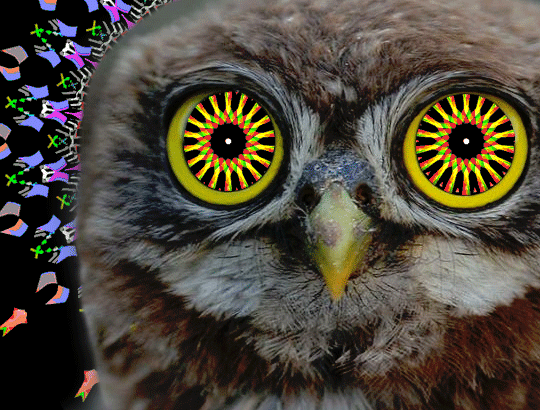One of the things I hate is (usually amateur stuff on YouTube) in which the person is getting overly scared even when it makes no sense.
Like they'll over act and start hyperventilating at a leaf and saying shit like "Oh my god what is that?!?!?! WHAT IS THAT?!?!" at like...a thud in the distance.
YouTube and Ghost Hunting shows seem to be the worst offender.
Another trope I hate is a horror game one but it's somewhat related; I hate it when the game tells you when to be scared by having a "sanity" effect or by the player character gasp or scream or whatever. Worst is if they have some kind of heartbeat sound effect that plays when you're supposed to be spooked.
But yeah, if a character starts saying shit like "WhAt ThE FuCk WaS ThAt?!" then I just get more annoyed than scared.


I requested an explanation for what you meant by a setting not being a 'wallpaper'. That was the explanation that I got, along with 'appreciation of scale' which itself requires an explanation.
Internal inconsistency of a setting is not (usually, at least) good writing, but something can be written well while having its world not be consistent. So yes, I maintain that worldbuilding is overrated. I am not sure what your refutation is.
Can you substantiate that point, i.e. that worldbuilding has to specifically be used to make main characters to feel 'small and insignificant', and using worldbuilding to instill something else is somehow not good? Do you consider works where characters do not feel 'small and insignificant' to be badly written just on that basis alone?
Over the Garden Wall has a setting that is substantially different from real life (in contrast to works set in historical and contemporary settings). Its worldbuilding, however, is both minimal (we know basically nothing about the world outside of the main characters' immediate surroundings) and doesn't make the characters feel 'small and insignificant'. And yet, you and I both seem to concur that the work is written well.
Firstly, do I understand it correctly that you divide narratives that involve characters into ones where characters are 'small and insignificant' and ones that are power fantasies?
Secondly, I actually can appreciate some power fantasies, but I would rather not get into this particular topic.
Thirdly, not sure what you mean by a world being 'bigger/smaller than the characters'.
'I can appreciate some power fantasies' and 'I like all power fantasies' are two different statements. Do you suggest I say that you are obligated to love every narrative with 'small and insignificant' characters?
Okay, can you explain what you mean, then? Surely, you don't consider me obligated to try to guess when you mean something very different from what you are saying and then try to divine what you mean, do you?
What do you mean, then?
There is a huge gap between characters not holding a 'Roman-style Triumph' and a story having a saddening/bad conclusion for the characters, so I'm not sure where the claim that I read you too literally is coming from in this case.
If 'small and insignificant' can mean basically whatever you want it to mean, then your initial words about wolrdbuilding having to make main characters feel 'small and insignificant' are simply not informative at all.
Also, let's consider another example - Bojack Horseman. Do you consider characters from there to feel 'small and insignificant'? If so, in what way do they feel 'small and insignificant'?
I am not. If you think those words to be interchangeable, then we should be able to say the following:
That obviously does not sound right, as worldbuilding is a literary tool, and the word 'surroundings' refers to people and things in one's vicinity. Those words are not synonymous, and this accusation is rather silly.
Notably, none of those things make characters feel 'small and insignificant' to me. If anything, the smallness of the setting makes one feel as if the main characters are some of the few actors capable of making an impact on the forest, and the fact that the story focuses on the main characters' interpersonal relationships rather than on some world-ending threats or global politics makes them feel very important (because they very much are in their relationships, which is the focus of the narrative).
Well, Over the Garden Wall has basically no lore to speak of (at least, not within the cartoon). And the work doesn't need more of it.
As for the narrative being unfinished, I do not understand. In what way is it unfinished when the characters got a thorough conclusion to their stories?